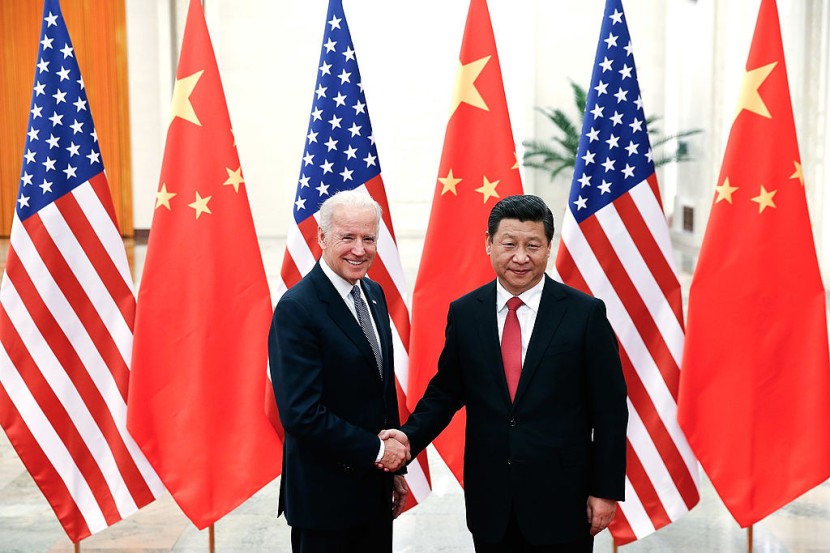
President Joe Biden and Chinese President Xi Jinping intend to conduct a virtual summit this year, creating a high-stakes venue for discussion of tariffs, human rights, and Chinese concealment regarding the origins of COVID-19. Biden and the communist "president for life" want to hold the meeting before 2022.
On September 9, Biden and Xi conducted a private 90-minute phone call, but a summit poses a significant risk to Biden. In March, Chinese diplomats won a propaganda win by mocking the United States in front of Secretary of State Antony Blinken at an in-person conference in Alaska.
Biden, Xi Jinping to hold virtual summit
It is unknown how much of the virtual summit will be open to the public, as per NY Post. Many of former President Donald Trump's policies regarding China have been maintained by the Biden administration.
Tariffs on Chinese goods are one example, as are sanctions imposed by the Trump administration on Chinese authorities for removing Hong Kong's autonomy and mistreating the Uyghur Muslim minority. However, Biden has taken a more conciliatory stance toward China.
Amid growing tensions over Taiwan, Joe Biden has dispatched US ambassador Jake Sullivan to meet with China's foreign policy advisor. Since Friday, almost 150 Chinese aircraft have violated Taiwan's airspace, including 56 jets on Monday in a significant escalation of hostility.
Later today, Sullivan will meet with senior Chinese foreign policy advisor Yang Jiechi in Zurich, Switzerland, after the White House's condemnation of Beijing's recent military intimidation of self-governed Taiwan.
The conversations will be a follow-up to Biden's call with President Xi Jinping last month, as the administration continues to seek to appropriately manage the competition between the two nations, according to a statement from the White House.
Sullivan referred to a phone call with Chinese President Xi Jinping on September 9, and tensions have increased substantially in recent days, Daily Mail reported. He was alluding to Washington's long-standing "one-China policy," in which the country will officially recognize Beijing rather than Taipei, as well as the Taiwan Relations Act.
US aims to establish diplomatic ties with China
The US move to establish diplomatic ties with Beijing rather than Taiwan is based on the hope that they would resolve Taiwan's future peacefully. The call was the first between the two presidents in seven months, and they addressed the need to prevent rivalry between the world's two greatest economies from devolving into confrontation.
Biden's remarks came after the president returned from a trip to Michigan to promote his $1.2 trillion bipartisan infrastructure plan as well as the bigger budget bill at a union hall. At the same time, the Taiwan-China relationship has been deteriorating, with China warning yesterday that World War III might start "at any time" after sending dozens of airplanes into Taiwan's airspace.
Tensions are growing as a result of China's aggressive posture toward Taiwan, the United States' plan to sell nuclear submarines to Australia, trade issues, and human rights crimes against Uyghurs in Xinjiang.
Per NDTV, as a major trade battle rages on with no resolution in sight, US Trade Representative Katherine Tai announced on Monday that she would soon be speaking with her Chinese counterpart.
Following the Zurich meeting, Sullivan will go to Brussels and Paris, where he will "brief our European allies and partners on his meeting with Director Yang," according to the White House. Biden, who has known Xi for years, has spoken with the Chinese leader twice since taking office. The second, which lasted 90 minutes, was held last month.
© 2026 HNGN, All rights reserved. Do not reproduce without permission.








